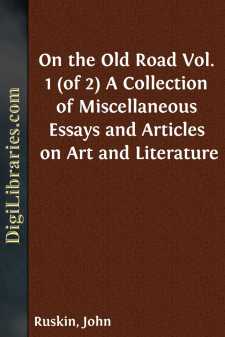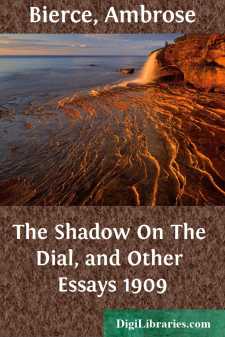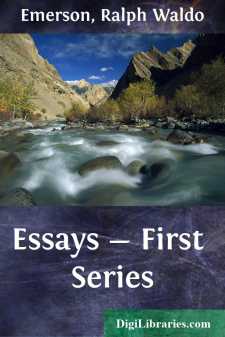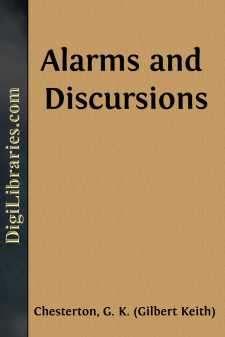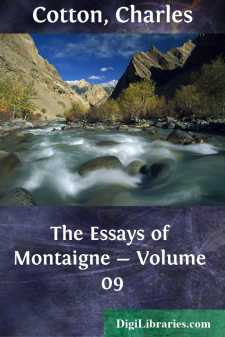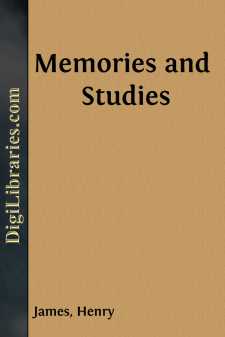Literary Collections
- American 84
- Ancient, Classical & Medieval 14
- Asian 1
- Australian & Oceanian 1
- Canadian 55
- Continental European 121
- English, Irish, Scottish, Welsh 179
- Essays
- General 24
- Letters 46
- Middle Eastern 1
Essays Books
Sort by:
by:
Joseph Addison
INTRODUCTION No character in our literature, not even Mr. Pickwick, has more endeared himself to successive generations of readers than Addison’s Sir Roger de Coverley: there are many figures in drama and fiction of whom we feel that they are in a way personal friends of our own, that once introduced to us they remain a permanent part of our little world. It is the abiding glory of Dickens, it is one...
more...
by:
John Ruskin
1st February, 1878. 1. In seven days more I shall be fifty-nine;—which (practically) is all the same as sixty; but, being asked by the wife of my dear old friend, W. H. Harrison, to say a few words of our old relations together, I find myself, in spite of all these years, a boy again,—partly in the mere thought of, and renewed sympathy with, the cheerful heart of my old literary master, and partly...
more...
by:
Ambrose Bierce
PREFACE THE note of prophecy! It sounds sharp and clear in many a vibrant line, in many a sonorous sentence of the essays herein collected for the first time. Written for various Californian journals and periodicals and extending over a period of more than a quarter of a century, these opinions and reflections express the refined judgment of one who has seen, not as through a glass darkly, the trend of...
more...
I. HISTORY. THERE is one mind common to all individual men. Every man is an inlet to the same and to all of the same. He that is once admitted to the right of reason is made a freeman of the whole estate. What Plato has thought, he may think; what a saint has felt, he may feel; what at any time has befallen any man, he can understand. Who hath access to this universal mind is a party to all that is or...
more...
I Once upon a time there lived upon an island a merry and innocent people, mostly shepherds and tillers of the earth. They were republicans, like all primitive and simple souls; they talked over their affairs under a tree, and the nearest approach they had to a personal ruler was a sort of priest or white witch who said their prayers for them. They worshipped the sun, not idolatrously, but as the...
more...
THE HERO. His name is George, generally speaking. "Call me George!" he says to the heroine. She calls him George (in a very low voice, because she is so young and timid). Then he is happy. The stage hero never has any work to do. He is always hanging about and getting into trouble. His chief aim in life is to be accused of crimes he has never committed, and if he can muddle things up with a...
more...
by:
Charles Cotton
CHAPTER I OF THE INCONSTANCY OF OUR ACTIONS Such as make it their business to oversee human actions, do not find themselves in anything so much perplexed as to reconcile them and bring them into the world's eye with the same lustre and reputation; for they commonly so strangely contradict one another that it seems impossible they should proceed from one and the same person. We find the younger...
more...
by:
Henry James
LOUIS AGASSIZ[1] It would be unnatural to have such an assemblage as this meet in the Museum and Faculty Room of this University and yet have no public word spoken in honor of a name which must be silently present to the minds of all our visitors. At some near future day, it is to be hoped some one of you who is well acquainted with Agassiz's scientific career will discourse here concerning...
more...
by:
Charles Cotton
CHAPTER I OF PROFIT AND HONESTY No man is free from speaking foolish things; but the worst on't is, when a man labours to play the fool: "Nae iste magno conatu magnas nugas dixerit." ["Truly he, with a great effort will shortly say a mighty trifle." —-Terence, Heaut., act iii., s. 4.] This does not concern me; mine slip from me with as little care as they are...
more...
by:
Oscar Wilde
HOW THEY STRUCK A CONTEMPORARY There is such a thing as robbing a story of its reality by trying to make it too true, and The Black Arrow is so inartistic as not to contain a single anachronism to boast of, while the transformation of Dr. Jekyll reads dangerously like an experiment out of the Lancet. As for Mr. Rider Haggard, who really has, or had once, the makings of a perfectly magnificent liar,...
more...



